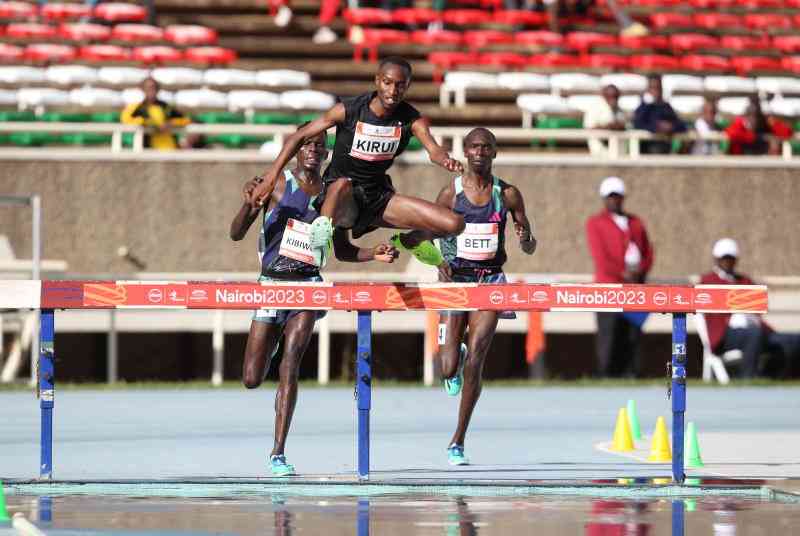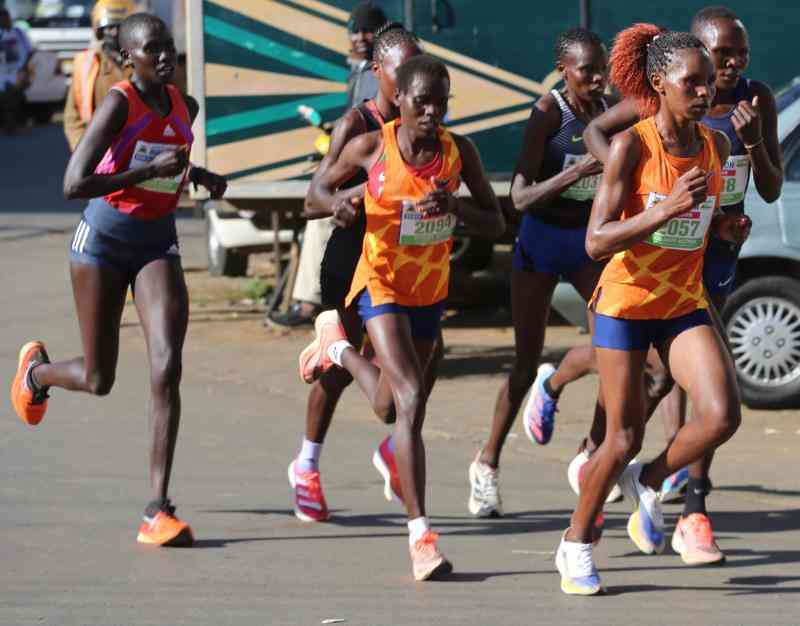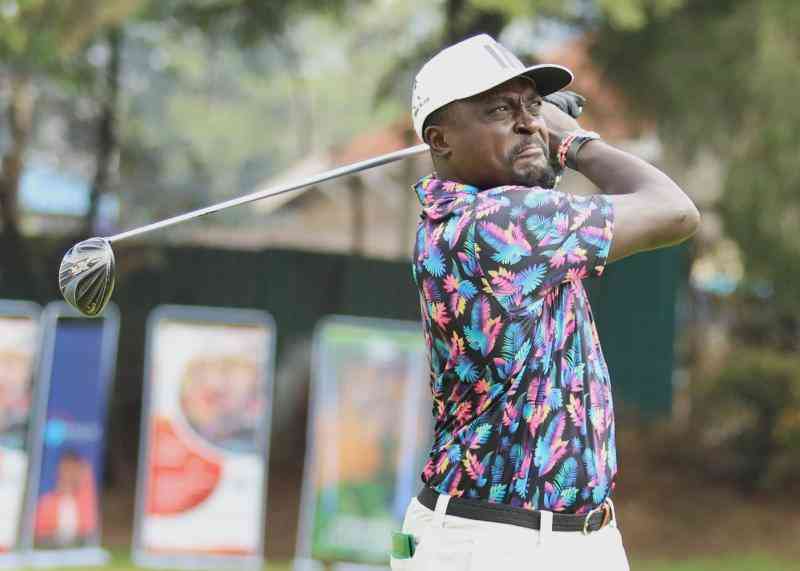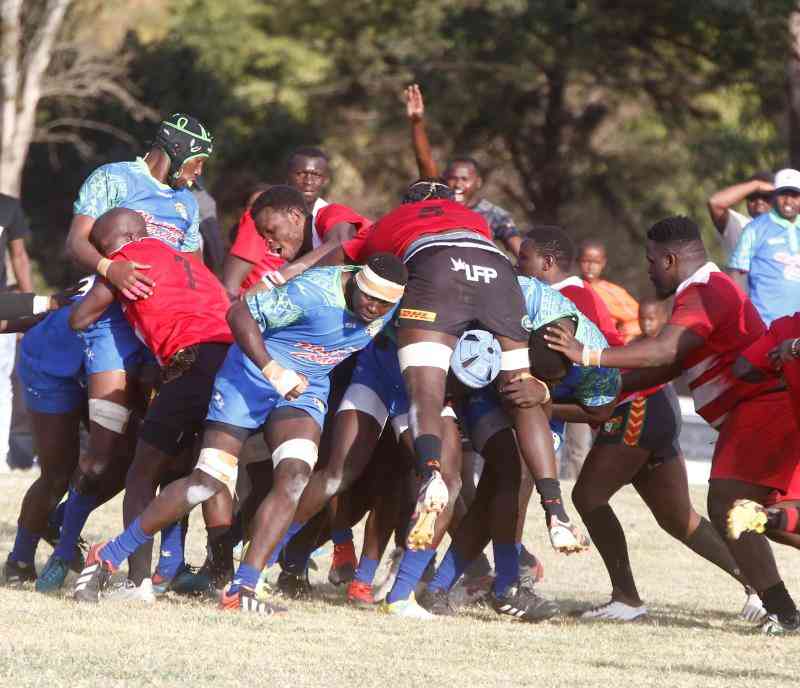Ebola threw the 2015 Africa Cup of Nations into disarray. Original hosts Morocco backed out saying they would not have the wherewithal to deal with the disease if it broke out in their country.
The championship has an alternative host and will now be held in Equatorial Guinea, the dates; January 17 to February 8.
But two battles rage concurrently; to successfully host the Afcon without any consequences of disease and a complete victory over Ebola.
In football circles, when you mention the three countries hardest hit by Ebola, Liberia, home of Africa’s most famous successful footballer ever, George Weah, comes to mind.
Limited facilities
It is, fortunately, the reaction from men like Weah which is also building confidence and showing proof that there are a lot of people willing to go into the frontline in the fight against the epidemic.
“There is a lot of suffering and fear. The facilities are limited; it is not a good thing to see. It breaks my heart,” Weah told BBC Sport recently but added that facing the problem head-on would be the solution.
“I live close to the hospital and I pass there every day and people are dying; others almost losing hope.
“But there are positive signs, the community getting down to work, to sensitize people about the disease and what to do to prevent. For example, we are used to shaking hands and now we are not shaking hands any more.
“However, I am worried about myself, the people of Liberia... all of us, that is, and would like to appeal to the whole world to come to our aid.”
Liberia and Sierra Leone eventually did not make it to the AFCON finals in Equatorial Guinea. Together with Guinea, who qualified, they played their qualifier “home” matches away from home to avoid the Ebola spread.
World’s best footballer
A lot of congratulations and encouragement is going out to Guinea, whose success is being seen across Africa as a victory over Ebola.
As 15 countries travel to join Equatorial Guinea at the Cup of Nations, eyes will be on West Africa and on the hope that Ebola will be defeated. Like he has done before, George Weah will be at home standing to be counted.
Weah’s country was embroiled in civil war between 1989 and 1996, throughout his colourful professional football career at AS Monaco, Paris St Germain and AC Milan which made him the world’s best footballer in 1995, to date the only African to achieve the feat.
Yet, amid the war, Weah personally paid all expenses, totaling $1 million (Sh85 million), to assemble, train and finance his country’s national football team to qualify for the 1996 Cup of Nations finals in South Africa.
Then, he said: “When a country is in crisis, I think we have a responsibility to give back,” said the man who had then made no less than $15 million (Sh1.3 billion) in football.
“It was my responsibility to find something that could give hope and some happiness to my fellow countrymen.” He collected footballers from all over the world, many of them refugees in Ghana and arranged for camping in Abidjan, Cote d’Ivoire.
He quit professional football at age 37 and at 39, responding to a popular demand, he ran for the country’s presidency in 2005. He had little education.
In fact, he joined high school at the age of 16 and left before completion to join professional football.
He was popular but even his biggest supporters saw the lack of education as a huge hurdle against the Harvard educated opponent, Ellen Johnson-Sirleaf.
A 40.6% of the vote for Weah against Johnson-Sirleaf’s 59.4% was not a mean feat.
In 2011, Weah ran for vice-president under the ticket of Winston Tubman but lost again. In between, 2005 and 2011, Weah had returned to school, finishing high school and enrolling in college to gain a Bachelors degree in Business Administration.
After 2011, he went on to gain an MA in Public Administration and now he is enjoying popularity as a front runner to succeed Johnson-Sirleaf when she finishes her second six-year term.
“I consider myself not a footballer, not a politician...just a normal human being,” he narrated in a recent documentary.
“I am George Manneh Weah, born in Liberia. I am a human being. Football is passion, I went to it, it gave me a sense of professionalism and it gave me a living, but I would not like to be stereotyped.”
“I want people to see me not as George Weah who has two or three million dollars in his bank account, not the George Weah who drives the best cars. I want people to remember me as the George Weah that helped a young kid to educate himself. This is the kind of person I would like people to remember me.”
And why would he like to be President?
Would-be president
“The question is why the Liberian people want me to be President, why they believe I can be President. I always wanted to serve my people and to be President is to serve.”
Indeed, what he knows best is to serve and at the moment Weah is doing what he can to drum up more international resources to stem the Ebola outbreak.
It is about saving lives and what could be more motivating than that?
The big concern about those fighting Ebola in Liberia, Sierra Leone and Guinea is the export of the disease to neighbouring countries, where public health infrastructure is lacking.
“As Liberians,” said Weah, “we made a mistake when the Minister of Health told us there was one case coming from Guinea in a taxi and that we should be careful because if we did not contain that person the disease would spread.
“A lot of people took that lightly and today we have thousands of cases in our country.”
However, Johnson Sirleaf, Weah’s adversary in politics as President seems to be up to the task of defeating Ebola and latest Press reports quoted her saying: “We want to have zero cases by Christmas.”
She added: “It’s a tall order. We’re trying to work at that. We like to say that Ebola was running after us two months ago. Today, we are running after Ebola.”
As assistance from aid groups, the United Nations and the United States flooded into the country, the rate of infection and death declined dramatically in recent weeks, though the disease continues to flare in neighbouring Sierra Leone and Guinea.
The number of daily Ebola infections in Liberia has declined from nearly 100 a day in September to about 25.
Johnson-Sirleaf, a Nobel Peace Prize winner and the first woman elected president on the African continent, said withering internal criticism struck at the foundation of her Liberian administration.
“We were all questioned about whether we were leading properly, and we were all questioned (about) whether we were doing the right things. It was painful,” she said. “Very difficult for me personally. Very difficult for the nation.”
 The Standard Group Plc is a multi-media organization with investments in media
platforms spanning newspaper print operations, television, radio broadcasting,
digital and online services. The Standard Group is recognized as a leading
multi-media house in Kenya with a key influence in matters of national and
international interest.
The Standard Group Plc is a multi-media organization with investments in media
platforms spanning newspaper print operations, television, radio broadcasting,
digital and online services. The Standard Group is recognized as a leading
multi-media house in Kenya with a key influence in matters of national and
international interest.
 The Standard Group Plc is a multi-media organization with investments in media
platforms spanning newspaper print operations, television, radio broadcasting,
digital and online services. The Standard Group is recognized as a leading
multi-media house in Kenya with a key influence in matters of national and
international interest.
The Standard Group Plc is a multi-media organization with investments in media
platforms spanning newspaper print operations, television, radio broadcasting,
digital and online services. The Standard Group is recognized as a leading
multi-media house in Kenya with a key influence in matters of national and
international interest.






